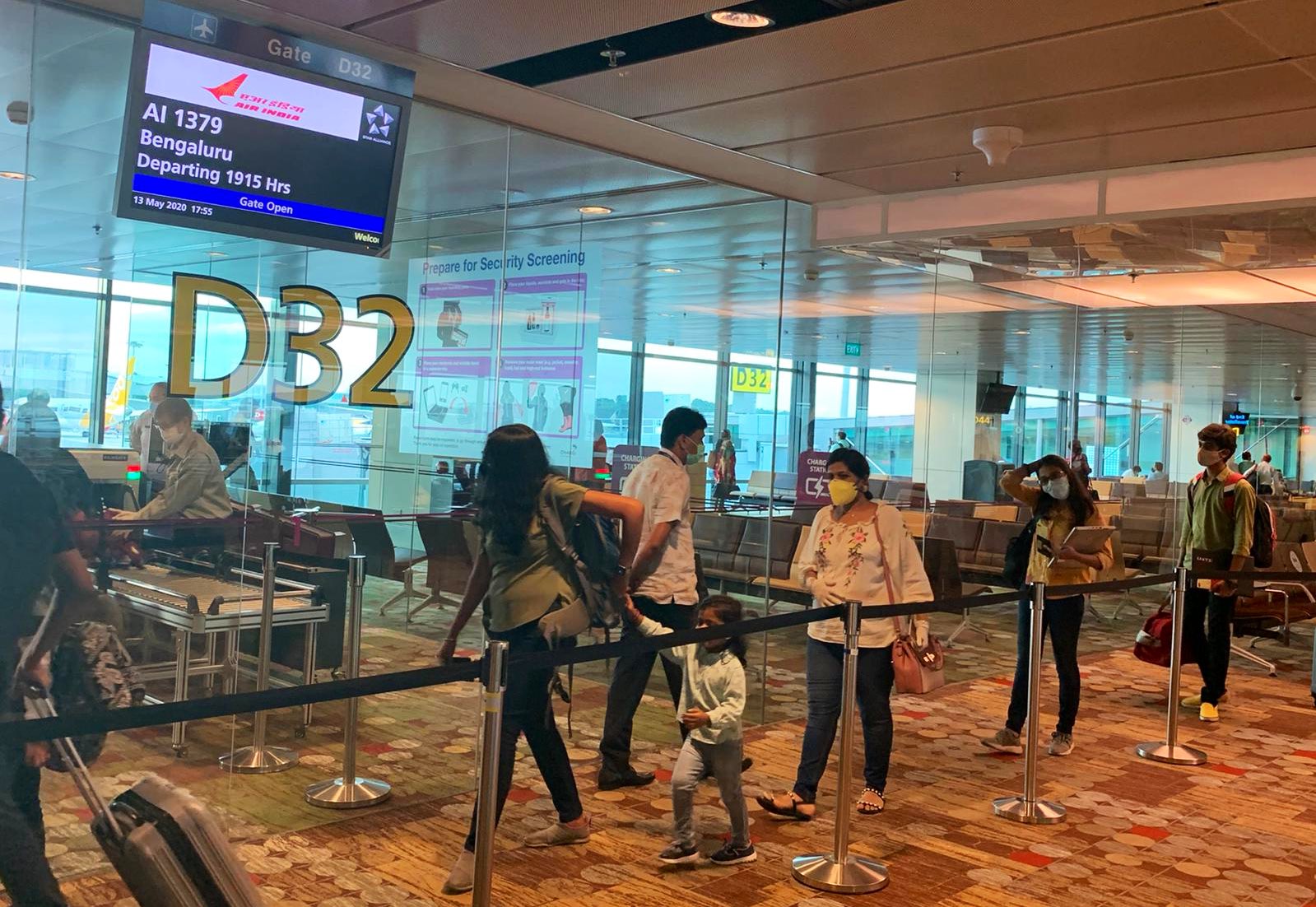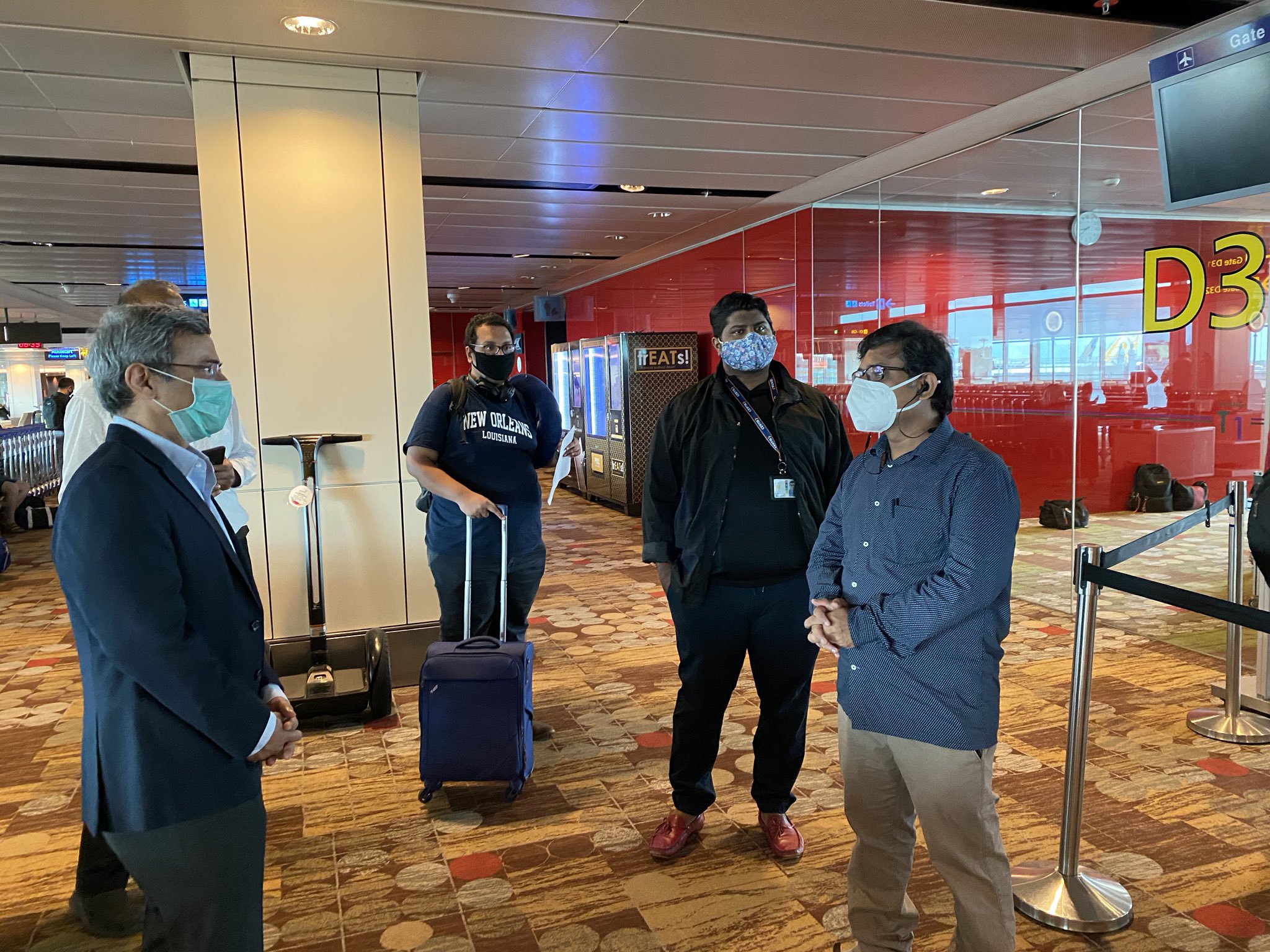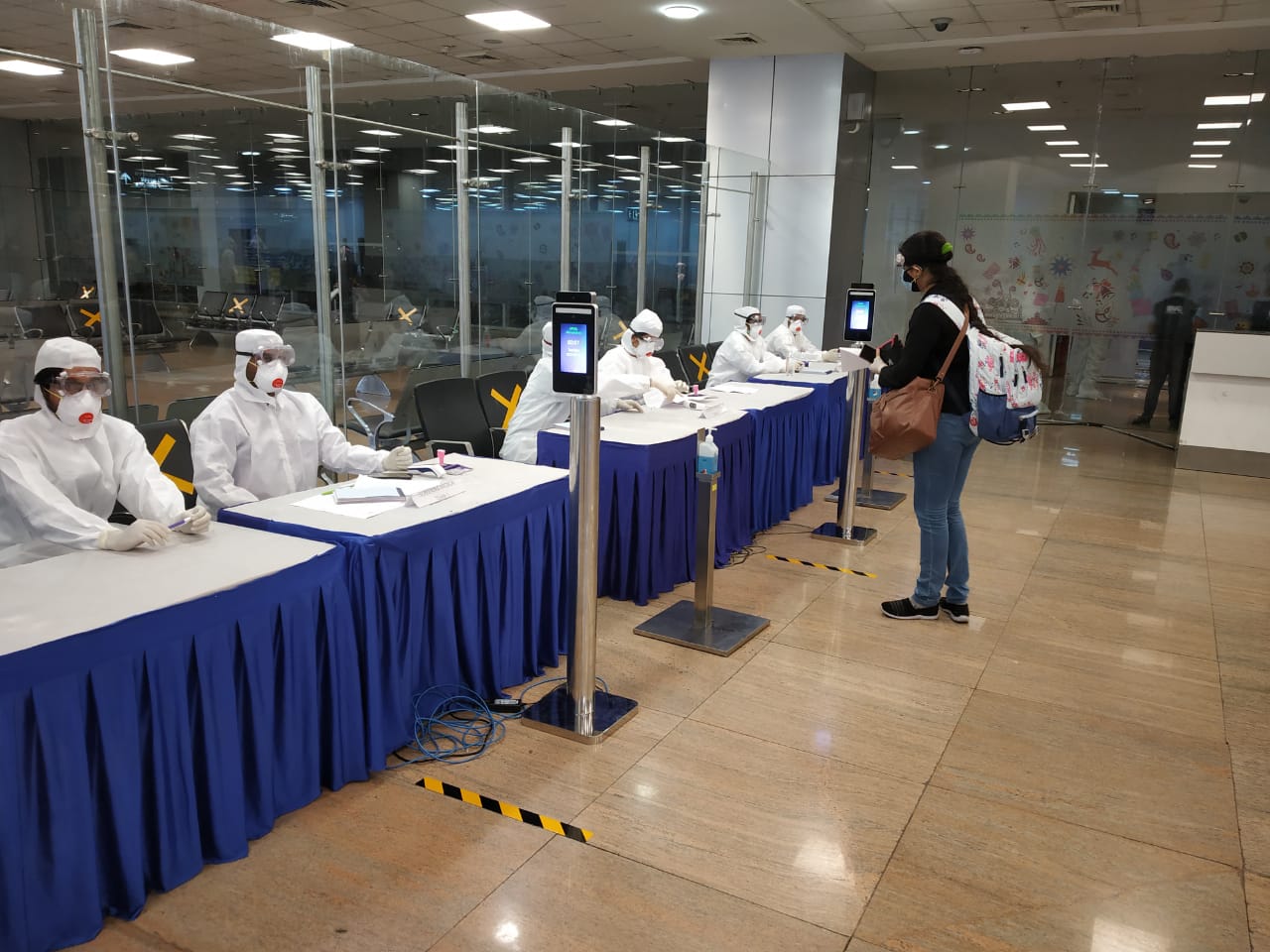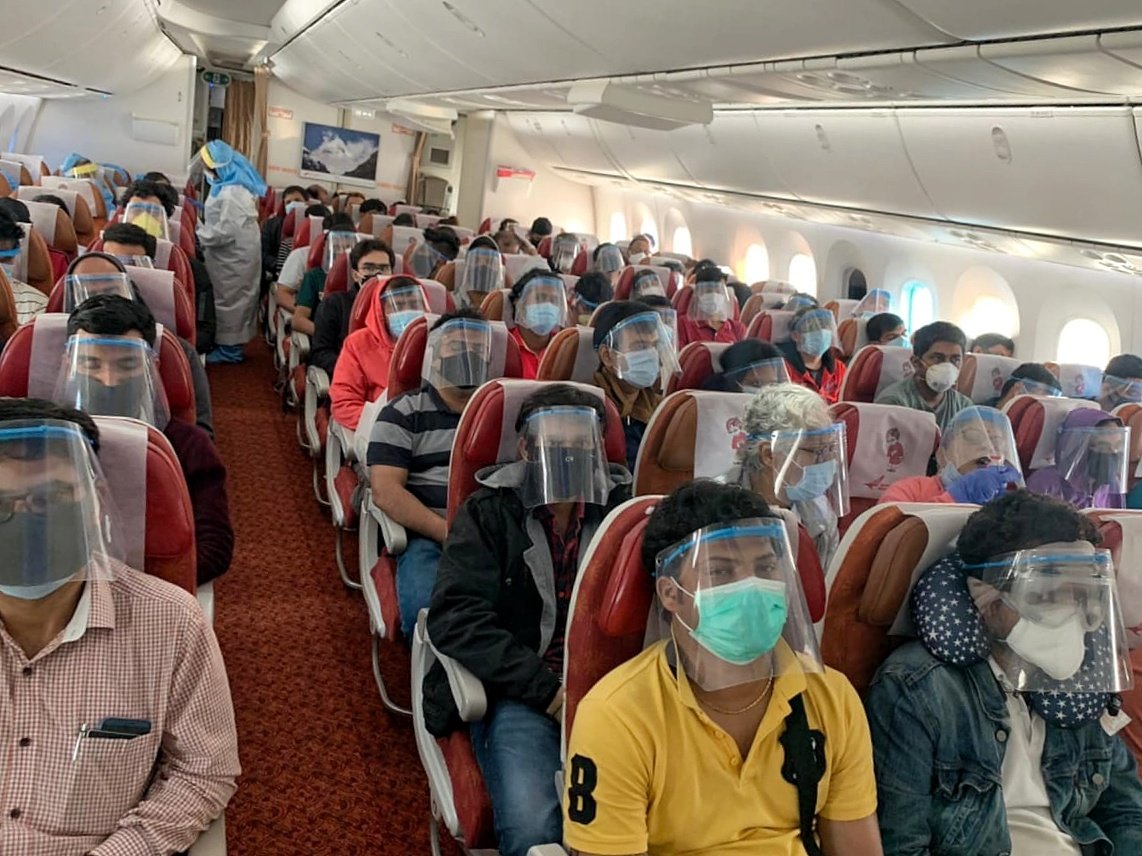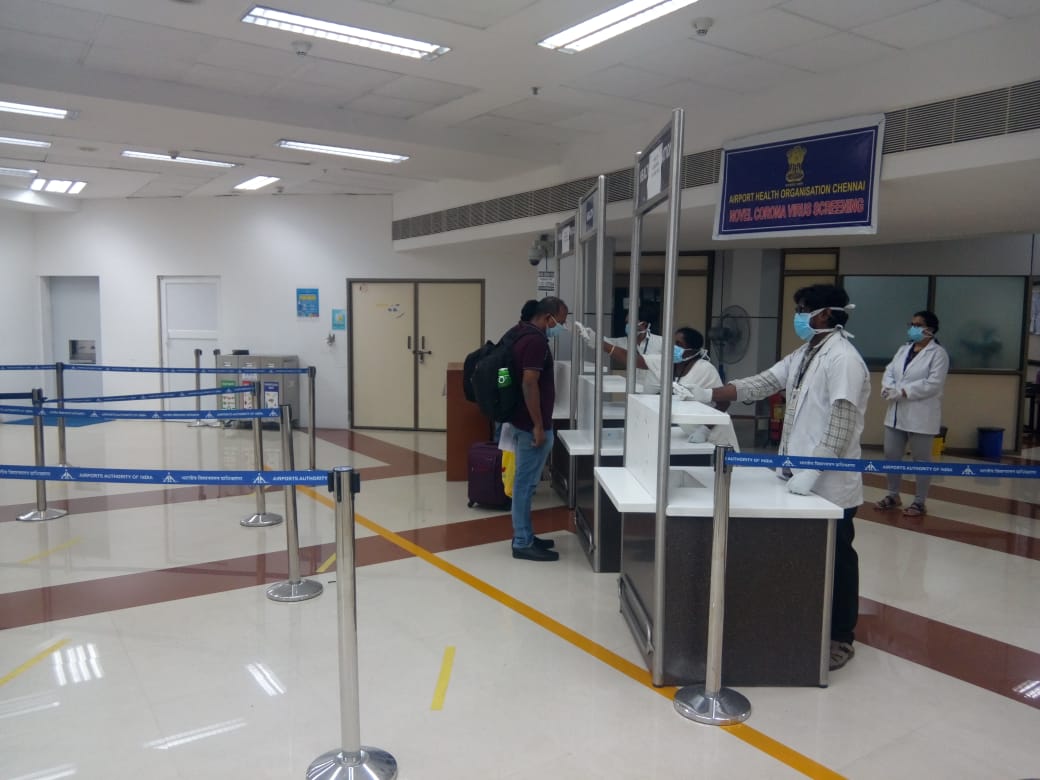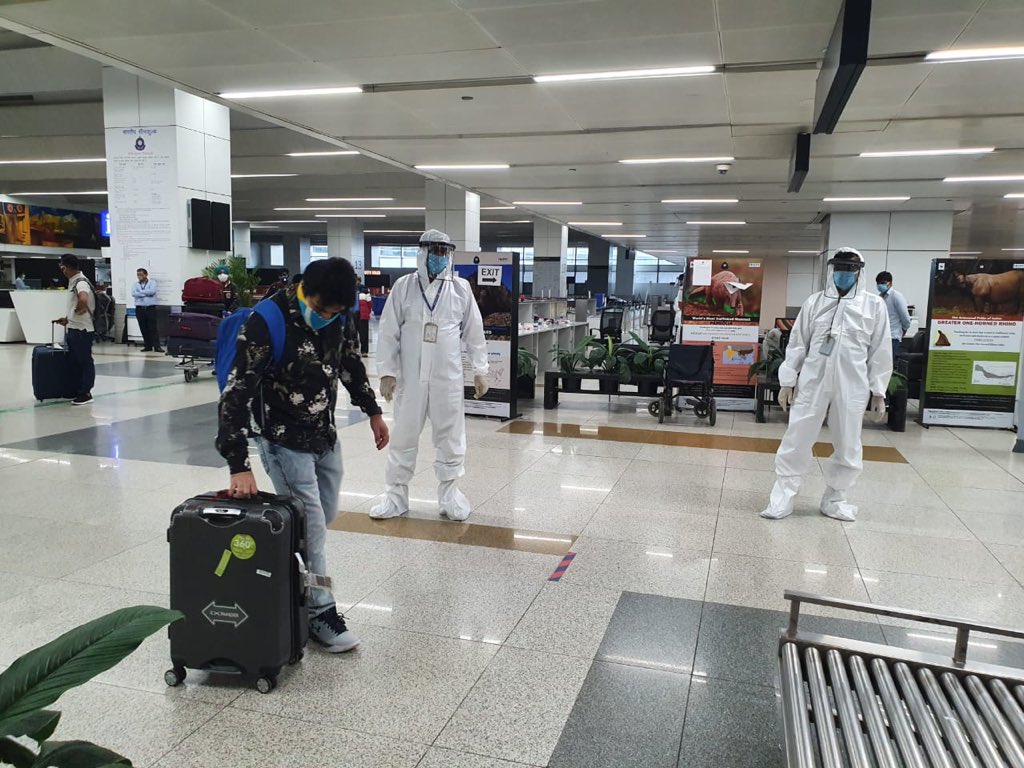A total of 8,503 stranded Indian citizens abroad have been flown back to India in the first phase of the Vande Bharat Mission in five days beginning from May 7. A large number of Indians are stranded across the world due to travel restrictions imposed by the COVID-19 pandemic. Therefore, it is a herculean task to select travellers based on parameters set by the governments.
Many Indians who have registered with the respective Indian missions in their country of residence are eagerly waiting for emails and phone calls. I had also registered with the High Commission of India (HCI) in Singapore and am grateful to HCI for including me in the list of second flight from Singapore to Delhi which was operated on 12 May.
I want to underline a few things based on my experience and interactions with some other Indians. One, HCI in Singapore has been extremely helpful, accessible round the clock and is pro-active in reaching out to stranded Indians. Two, they extended all kinds of support from food, accommodation, dry rations to supply of essential medication to some per the need of the hour. Finally, HCI also extended a helping hand to those who were over-stressed and required urgent attention and medical counselling.
HCI officials personally monitored the whole process of repatriation from inter-agency coordination, data collection, list preparation, ticketing to take-off of special flights. It is a very intense engagement with various agencies of the host country as well as coordination with various ministries and departments of Central and State governments in India.
It is important to understand and acknowledge the enormous efforts put together by ‘Team India’ to bring stranded citizens home. In fact, the Modi government has qualitatively and quantitatively enriched engagement with the Indian diaspora. The Ministry of External Affairs and Indian missions are accessible and have been pro-active in extending timely assistance to the diaspora when needed. It is not surprising, therefore, that stranded Indians are getting all necessary support from the government.
Indian Missions started the preliminary work of data collection long before the Vande Bharat Mission was announced. Constant communication and teamwork helped to develop an ‘Action Plan’ with a ‘Standard Operating Procedure’ (SOP). For example, setting up quarantine centres, medical screening and testing of travellers, preparing airport logistics to receive such flights and preparing cabin crew to handle such exercise are some steps of a very complicated overall process.
All those who got included in the list of passengers were promptly informed and were asked to buy a ticket from the Air India Office. We were asked to report four hours before the scheduled departure of the flight to complete the standard protocol set for this process. Air India provided masks, face shield, hand sanitizers, food packet and drinking water to all passengers.
All crew members were in Personal Protective Equipment (PPE) suits. Upon arrival at the New Delhi airport, all passengers went through thermal screening and then were divided into groups. Each group comprised 20 passengers and the staff of the Central Industrial Security Force (CISF) facilitated the whole process at the airport, including immigration and customs clearance for their respective groups.
Various state teams comprised of staff from health, administration and police departments were present at the airport. All passengers went through medical screening once again and state officials briefed us about quarantine facilities and other processes. I noticed unhappiness among some travellers due to limited choices for quarantine facilities, but we need to appreciate the accommodation challenges. While quarantine at hotels are paid for by the person availing those facilities, the state governments’ accommodation for quarantine at government schools/colleges are free.
Most of the staff from state governments dealing with this unprecedented health crisis are not trained to deal with such large-scale exercises. They are also prone to infection. They need to closely monitor all incoming passengers during the quarantine, and it would be a nightmare to coordinate if they set-up quarantine facilities in a large number of places. It is important to note that police and other civic officials are performing their duties in an exemplary manner. Despite all odds, members of Team India are working assiduously to assist us in our safe return from other countries.
As the second phase of the mission will begin soon, it is expected that the process will be streamlined further and their experience from the first phase could help them to reduce the time. Some flights come from long distances and spending several hours at the airport after arrival without food, water etc. is extremely tiring. It is expected that everyone is learning from the experience dealing with this highly risky affair and travellers from successive flights will experience enhanced efficiency. We must appreciate the extraordinary effort of Team India to stand with all of us in this difficult time and to take all possible measures to bring us back home. Thank you Team India. We are grateful to you all.

